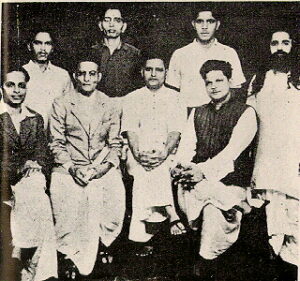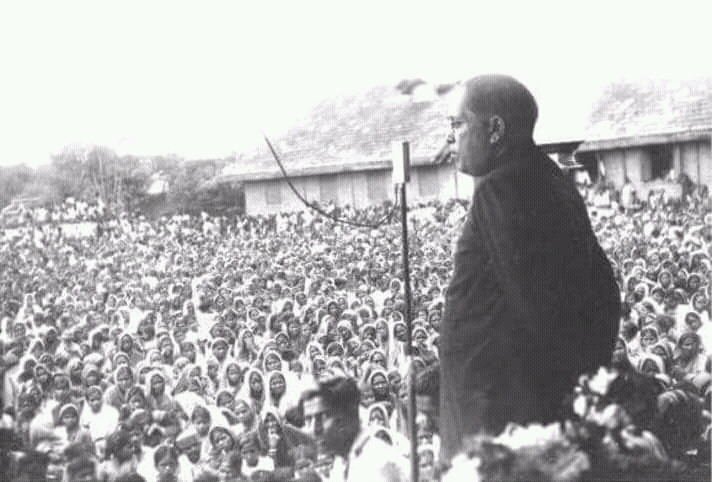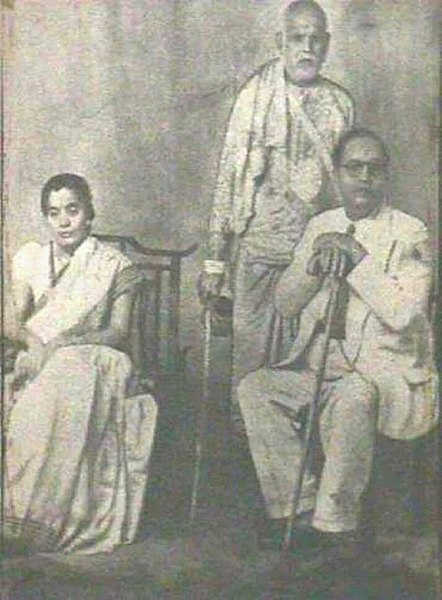Life is like a lion's fight—proud of our scars, even when we don't win. Figures like Nelson Mandela, Muhammad Ali, Rocky Balboa, and Mahatma Gandhi taught us perseverance and inner strength. In a world striving for nonviolence, can we maintain peace without turning away from conflict, and should we continue to fight for what's right?
For me, life is like a lion's fight. So, if you feel pity, cheer up and always walk upright. Don't lick the wounds you've suffered throughout your life, but be proud of them. These scars adorn you as a human being, because even if you don’t win a fight, you can always roar like a lion! I never really understood who came up with or would have written this beautiful encouragement and/or motivational text. Who had so much wisdom in the past, who taught us not to give up?
Who had so much wisdom in the past, who taught us not to give up?
If you search for it on the internet, various sites suggest that it could have been written or invented by different people, such as:
Nelson Mandela, Mandela often spoke of perseverance, overcoming difficulties, and finding strength in adversity. A well-known quote of his is: "It always seems impossible until it's done." Which ties in with the idea of keeping going, even when you feel like you're not winning the fight.
Or: Muhammad Ali. Ali, the famous boxer, often used powerful metaphors about fights and perseverance, such as "Float like a butterfly, sting like a bee." His attitude to life was that of a fighter who was proud of his scars and his struggle, which corresponds to the idea in the quote about not "licking the wounds” but wearing them with pride. Or maybe: Rocky Balboa (Sylvester Stallone).
Picture: Together We Remember
The fictional Rocky is one of the most iconic examples of perseverance. In Rocky Balboa (2006) he says: "It's not about how hard you hit. It's about how hard you can get hit and keep moving forward." This is consistent with the message of being proud of your scars and continuing to fight even if you don't always win. Maybe even: Brené Brown, who is a researcher in the field of vulnerability and courage, Brené Brown has spoken a lot about the idea of 'shame' and 'vulnerability.' In her work, she emphasizes that you get strength from your vulnerabilities and the scars you
have incurred in life, which does draw a parallel with the idea of being proud of your struggles and scars. Finally, it reminds me of: Mahatma Gandhi.
Gandhi often emphasized the importance of inner strength and perseverance, even in the face of violence or adversity. His approach to nonviolent resistance was based on the idea that you must stand up for your beliefs, which also ties in with the idea of roaring like a lion even if you don't win the fight. In my youth, my mother taught me one of the twelve commandments that Moses received on Mount Sinai: "If anyone strikes you on the left cheek, turn the right cheek to him." In my view, the last generation of people on our planet is increasingly losing their fighting spirit. The lust to win. More and more people are reminding each other that a non-violent world should be our future.
In recent centuries, far too much unnecessary blood was probably spilled, by magnifying conflicts far too far. There would and had to be a winner from the many battles. Various parties also fought to the death for their wrong. These wars are still fresh in our minds after reading many history books. People like Hitler, Napoleon, Stalin, all had their own ideas about what the world should look like for all of us. The memories of the hardships that many had to endure during these often "unnecessary" battles created a call for "peace" in our world, which had pushed so far that the word "conflict" was pushed further and further into the background, and that was not bad.
Let us thank the Lord for the fact that we currently live in an increasingly non-violent world, but does this mean that we no longer dare to stand up for our own rights, and therefore often let our duties be for what they are? Pay attention!! I am not advocating the return to wars, but should we continue to watch a certain Mr. Putin humiliate more and more people, and bend an ever-larger part of the world to his will? Are the Palestinians allowed to become increasingly violent in the Gaza Strip? This week I read that the prisoner exchanges in the wars in the Middle East are not “balanced.” During this "prisoner exchange" terrorists are exchanged for mothers with children, people who pose a permanent danger to "our" welfare state are released so that they can again plant bombs in innocent villages and towns.
Can we also maintain world peace without violence?
I wrote it before, can we stop Putin and Hamas in a non-violent way, or should we, as we now see happening around us, turn our face the other way? Who has the solution to be able to achieve a peaceful world again? Can we do this by looking each other straight in the eye, and discussing where all the abuse of power ultimately leads? I would love to hear from you!

















